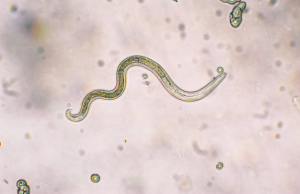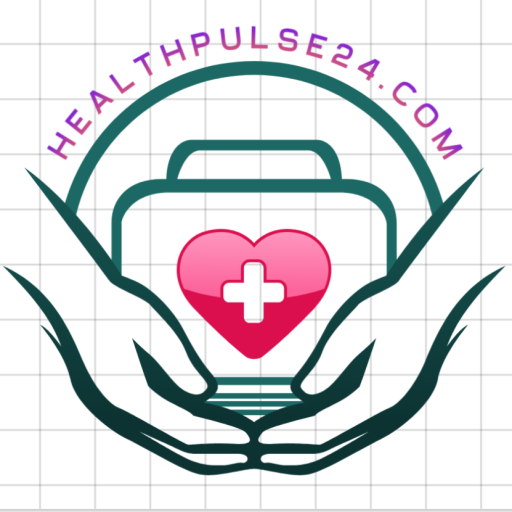Did you know that over 1 billion people globally suffer from parasitic diseases at any given time? These hidden invaders—ranging from microscopic protozoa to long tapeworms—cause devastating health issues, especially in areas with poor sanitation. Whether you’re curious, concerned, or just want to protect your family, this guide breaks down the top 10 parasitic diseases, their symptoms, causes, treatments, and how to stay parasite-free.
By the end, you’ll understand the most common parasitic diseases, learn about the list of parasites in humans, and discover practical steps to safeguard your health.
What Are Parasitic Diseases? (Definition & Quick Facts)
Parasitic diseases are illnesses caused by organisms that live on or inside a host, feeding off them to survive. These parasites may cause minor irritation or lead to severe organ damage.
Types of Human Parasites:
- Protozoa – Single-celled organisms (e.g., Giardia, Plasmodium)
- Helminths – Worms (e.g., roundworms, tapeworms)
- Ectoparasites – External parasites (e.g., lice, mites)
Quick Facts:
- Over 100 types of human parasites exist.
- Most cases occur in tropical/subtropical regions.
- Poor hygiene and sanitation are leading contributors.
Common Symptoms & Warning Signs
🗣️ Voice Search Query: “What are the symptoms of parasitic infections?”
General Symptoms Include:
- Abdominal pain – From intestinal parasites
- Diarrhea – Common in protozoal infections
- Weight loss – Due to nutrient theft
- Fatigue – From internal inflammation and anemia
- Itchy skin or rashes – Especially with ectoparasites
- Fever and chills – Seen in malaria and other bloodborne parasites
📌 Some symptoms may appear weeks or months after infection. Always consult a healthcare provider for accurate diagnosis.
Causes & Risk Factors
Parasitic diseases are caused by ingesting, touching, or being bitten by parasites. Risk increases with poor hygiene, lack of clean water, or travel to endemic areas.
| Causes | Risk Factors |
|---|---|
| Contaminated water or food | Living in tropical regions |
| Poor sanitation or hygiene | Weakened immune system |
| Insect or mosquito bites | Children and the elderly |
| Contact with infected animals | Outdoor workers or travelers |
Types & Classifications
Parasitic diseases are broadly categorized based on the type of parasite and the affected body system.
| Type | Symptoms | Severity | Treatment |
|---|---|---|---|
| Protozoal | Diarrhea, fatigue | Moderate | Antiprotozoal meds |
| Helminthic | Abdominal pain, anemia | Severe | Deworming agents |
| Ectoparasitic | Skin irritation, itching | Mild | Topical antiparasitics |
Who is Most at Risk?
Certain groups are more vulnerable:
- Children – Poor hygiene, frequent contact with soil or pets
- Travelers – Exposure to foreign pathogens
- Immunocompromised individuals – Reduced ability to fight infections
- People in poverty-stricken regions – Lack of clean water and healthcare
How Parasitic Infections Progress
| Stage | Symptoms | Recommended Treatment |
|---|---|---|
| Early | Mild discomfort, fatigue | Lifestyle changes, hydration |
| Moderate | Weight loss, frequent pain | Antiparasitic medications |
| Advanced | Organ damage, chronic illness | Hospitalization, surgery |
Complications & Long-Term Effects
If left untreated, parasitic infections can cause:
- Malnutrition and stunted growth
- Organ damage (e.g., liver, lungs, intestines)
- Neurological problems (in rare cases)
- Infertility or reproductive issues
- Sepsis or death in severe cases
Diagnosis & Medical Tests
| Test Type | Purpose | Accuracy | Cost |
|---|---|---|---|
| Stool Test | Detects eggs or larvae | High | Affordable |
| Blood Test | Identifies antibodies or antigens | High | Moderate |
| X-ray/CT scan | Views organ damage from parasites | Medium | Expensive |
| Endoscopy | Visual inspection of GI tract | High | High |
Conventional Treatment Options
- Antiparasitic medications (e.g., albendazole, ivermectin)
- Antibiotics for secondary bacterial infections
- IV fluids for dehydration
- Surgical removal (for cysts or large worms)
- Iron supplements for anemia due to blood loss
Home Remedies & Natural Solutions
While not replacements for medical treatment, some remedies show promise:
- Garlic – Natural antiparasitic effects
- Pumpkin seeds – Effective against tapeworms
- Papaya seeds – May reduce intestinal parasite load
- Probiotics – Restore gut health after treatment
- Clove oil – Antimicrobial and antifungal benefits
📌 Always consult a doctor before relying solely on natural remedies.
Best Diet for Managing Parasitic Infections
| Foods to Eat | Foods to Avoid |
|---|---|
| Yogurt, kefir (probiotics) | Undercooked meats |
| Garlic, turmeric | Raw or unwashed vegetables |
| Bananas, rice | Sugary and processed foods |
| Leafy greens (washed well) | Alcohol and caffeine |
Lifestyle Changes for Long-Term Relief
- Practice good hygiene: handwashing, sanitizing surfaces
- Boil or filter water before drinking
- Wash fruits and vegetables thoroughly
- Avoid walking barefoot in potentially contaminated areas
- Regular deworming treatments in high-risk zones
Prevention Strategies
✅ Tips to stay parasite-free:
- Drink bottled or purified water when traveling
- Cook meat thoroughly
- Wear insect repellent in endemic regions
- Avoid swimming in stagnant water
- Vaccinate pets and treat for fleas/worms regularly
Alternative Therapies
Some people explore complementary options:
- Acupuncture – For symptom management
- Ayurveda & Traditional Chinese Medicine – Herbal approaches
- Mindfulness & Meditation – Stress reduction improves immunity
Medications vs. Natural Remedies
| Treatment | Effectiveness | Side Effects | Cost |
|---|---|---|---|
| Antiparasitic meds | Very high | Nausea, dizziness | Moderate |
| Natural remedies | Variable | Mild (gas, bloating) | Low |
| Combined approach | Balanced effectiveness | Reduced relapse risk | Moderate |
When to See a Doctor

Seek immediate care if you experience:
- Persistent fever or chills
- Bloody stool or vomiting
- Unexplained weight loss
- Severe abdominal pain
- Skin rashes with spreading irritation
Myths & Facts About Parasitic Diseases
🧠 Myth: Only people in poor countries get parasites.
✅ Fact: Anyone can get infected, including travelers in developed countries.
🧠 Myth: You can treat parasites with fasting.
✅ Fact: Most parasites require medication for complete elimination.
Frequently Asked Questions
What are the top 10 parasitic diseases?
Malaria, giardiasis, toxoplasmosis, schistosomiasis, trichomoniasis, amebiasis, tapeworm infection, hookworm, ascariasis, and leishmaniasis.
Can you have a parasite without symptoms?
Yes, some people remain asymptomatic for years.
How do doctors test for parasites?
Blood tests, stool samples, imaging scans.
Are parasites contagious?
Some are, especially protozoal infections.
Can pets transmit parasites to humans?
Yes, especially through fecal matter.
Is there a vaccine for parasitic diseases?
Few exist, with more under development.
How long does treatment take?
From a few days to several weeks.
Do natural remedies work?
They can help but shouldn't replace medications.
Are children more vulnerable?
Yes, especially due to weaker hygiene habits.
Can parasites cause mental health issues?
Yes, chronic infections may contribute to anxiety or fatigue.
Case Studies & Success Stories
Case 1: Sarah (Age 32)
Contracted giardiasis while hiking. Diagnosed via stool test. Recovered fully after two weeks of metronidazole.
Case 2: David (Age 55)
Suffered chronic fatigue. Bloodwork revealed toxoplasmosis. Managed through treatment and immune support therapy.
Case 3: Emily (Age 4)
Diagnosed with pinworms at daycare. Entire household treated successfully with over-the-counter medication.
Impact on Different Age Groups
| Age Group | Common Symptoms | Challenges | Best Management Strategies |
|---|---|---|---|
| Children | Irritability, diarrhea | Diagnosing, medication dosage | Pediatric formulations, hygiene education |
| Adults | Abdominal pain, fatigue | Work impact, stress | Routine screening, dietary changes |
| Seniors | Malabsorption, anemia | Weakened immunity | Medical support, nutritional care |
The Connection Between Parasitic Diseases and Mental Health
Parasitic infections can:
- Cause fatigue and brain fog
- Trigger anxiety or depression
- Affect sleep and appetite
- Impact cognitive development in children
Future Research & Emerging Treatments
Exciting developments include:
- CRISPR gene editing to target parasites
- mRNA vaccines under trial for malaria and toxoplasmosis
- AI-assisted diagnosis through smart microscopy
- Nano-delivery drugs for targeted treatment with fewer side effects
Summary Table for Quick Takeaways
| Section | Key Takeaways |
|---|---|
| Causes | Contaminated water, poor hygiene |
| Symptoms | Fatigue, weight loss, diarrhea |
| Diagnosis | Stool tests, bloodwork, imaging |
| Treatments | Medications, natural support, surgery |
| Prevention | Hygiene, water safety, pet care |
Parasitic diseases are more common—and dangerous—than most people think. But with the right knowledge, preventative habits, and treatment, they’re entirely manageable. If you or someone you know is showing symptoms, don’t wait. Early action saves lives.
👉 Want more expert health tips? Subscribe to our newsletter for weekly wellness insights!









